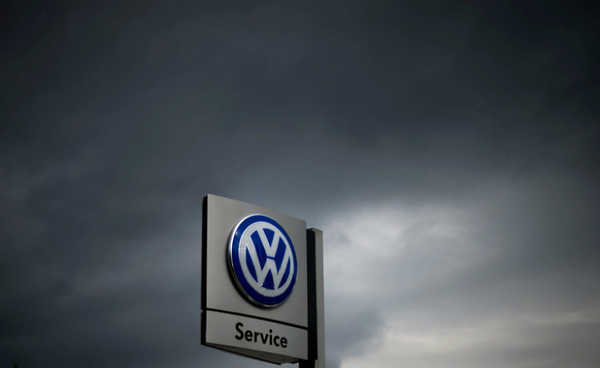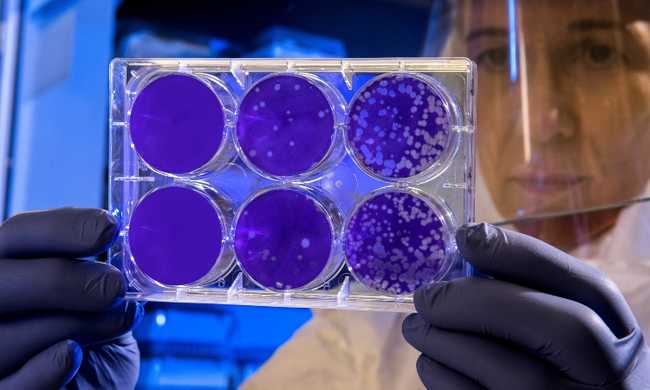Understand why the Volkswagen scandal is a global public health problem
The controversy could change the use of fuel and interfere with the automobile's future, according to experts

A major scandal involving automaker Volkswagen has surfaced. On September 18, the United States government accused the brand of defrauding the results of pollutant tests on 500,000 vehicles sold in the country - among them, the TDI versions of the Golf, Jetta, Beetle and Audi A3 cars, produced between 2009 and 2015, in addition to Passats made between 2014 and 2015. After the case hit the news and speculation began, Volkswagen admitted, on September 22, that 11 million diesel-powered vehicles, in models of various brands belonging to the group, were adulterated. The case has been mentioned in the international media as dieselgate, in reference to the case watergate, great scandal in the political history of the United States.
The fraud damages the image of the German automaker, since the company that positioned itself as environmentally conscious, having, in a July 2014 letter to Greenpeace, assumed a commitment to reduce CO2 emissions by 2020. The company's shares suffered a sharp drop. and Martin Winterkorn resigned as chief executive of Volkswagen.
In the US, the company will be required to recall and repair vehicles free of charge. Volkswagen announced that it set aside 6.5 billion euros (about R$29 billion) to pay fines and repair the cars. The value is equivalent to half of the automaker's profit forecast for this year.
But what was this scandal and what are the impacts of the fraud on the environment and our health?
The fraud consisted of a mechanism installed in cars equipped with an EA 189 diesel engine. The United States Environmental Agency (EPA) concluded that the software recognizes when the vehicle is under technical inspection, switches the engine to economy mode and injects chemicals to reduce toxic gas emissions. Thus, the results of inspections show emissions that would conform to standards. But under normal driving conditions, the emission would be up to 40 times greater than US law allows.
Burning diesel releases several pollutant gases into the atmosphere, such as carbon monoxide, nitrogen oxide, sulfur, among others - responsible for the death of thousands of people annually. For this reason, countries have regulatory agents to control emissions of these gases. Volkswagen was getting around this by making at least 11 million of its cars look less toxic than they really are, misleading consumers and further contributing to the process of global warming. Much of the world's population is concentrated in large cities, and the company has allowed these people to be exposed to an even greater level of toxic and carcinogenic waste resulting from burning diesel (learn more about them here).
West Virginia University researchers noted that the emission levels of diesel-powered vehicles in official tests were much higher than in road tests. They found that nitrogen oxides (NOx) emissions are 10 times to 40 times higher than allowed by the EPA.
NOx gases (understand more here) are one of the main sources of urban pollution and this is one of the reasons that cause the dieselgate be a matter of great concern. According to an analysis published in the British newspaper The Guardian, the impact of VW's 11 million adulterated vehicles worldwide can mean the emission of 237,000 to 948,000 tons of polluting gases per year. This data is colossal, meaning an emission higher than that of the largest power station in Europe, Drax, which releases 39 thousand tons of NOx per year. In contact with sunlight, nitrogen oxides and dioxides (NO 2 ) react to form dangerous secondary pollutants such as ozone.
With regard to the emission of pollutants into the atmosphere, diesel is seven times worse than gasoline. Also, prolonged exposure to diesel increases the risk of lung and possibly bladder cancer (learn more). In addition, it can aggravate inflammation in the lungs, trigger asthma and bronchitis, and increase the risk of heart attacks and strokes.
According to the Environmental Company of the State of São Paulo (Cetesb), 40% of the atmospheric pollution caused by fine inhalable particulate material (particles that manage to penetrate into the deepest part of the lungs) in the city of São Paulo comes from the process of burning diesel. According to the NGO healthy air, exposure to toxic gases in the UK causes an average of 29,000 premature deaths per year. Can you imagine the effect on a global level?
Is the VW scandal limited to the US?
No. Volkswagen assumed that the failure affects other markets, but did not specify the affected countries. The brand reported that the fraud is in cars that use the EA 189 engine, which is 2.0 liter, but did not describe which models and brands are affected.
Brazilian law does not allow light diesel vehicles, only pickup trucks, SUVs, trucks and buses (which can already cause considerable damage). The only Volkswagen automobile with a diesel engine sold in our territory is the Amarok pickup. However, the scandal has set a precedent for the investigation of other brands and it is likely that other automakers also have fraud.
In an interview with the vehicle The Telegraph, York University professor of Atmospheric Chemistry Alastair Lewis said that "virtually all vehicles in recent years appear to emit substantially more NOx in the real world than when tested in laboratories, regardless of manufacturer". He concluded by saying that Volkswagen was caught in the act, but that probably other companies have also used devices to manipulate results and pass emissions tests.
The scandal has not only hit Volkswagen, it can also hit the entire auto industry. THE EPA and the California Air Resources Board began to gather vehicles from other manufacturers to test similar scams. In addition, authorities from other countries, such as Germany, Italy, France and South Korea, have already announced that they will carry out investigations in their territories on the brand's vehicles.
And what about diesel?
Like dieselgate, the auto industry and its supposedly “low environmental impact” diesel cars must face public rejection that could have serious consequences for the fuel.
In the 1990s, the governments of the countries of the European Union (EU) and the European Commission encouraged the use of diesel engines in cars with a lower tax rate compared to gasoline. In the period, Europe and Japan had an average of 10% of diesel cars on the streets. Since then, the adhesion to diesel vehicles has grown in the European Union and currently the fleet represents 35% of the total, according to a 2013 study carried out by Michel Cames and Eckard Helmers. There are many consumers who prefer diesel-powered cars precisely because fuel is the most economically viable option.
In early September 2015, a European report warned that, when road-tested, nine out of ten new cars with diesel engines break EU pollution limits. Vehicles emit seven times more NOx gases than allowed by legislation, according to research produced by Transport & Environment (YOU).
An article by Leonid Bershidsky, columnist for Bloomberg, titled "Volks Scandal Will Accelerate Diesel's Death" points out that modern diesel engines could keep emissions below Euro 6 permitted levels. However, implementing the necessary technology makes vehicles more expensive, can affect their performance and demand constant monitoring of urea levels. Urea would be used to reduce the amount of oxidation.
For the columnist, "there are only two possible paths: to ensure that the emission performance of new diesel cars is flawless — which will not be easy to do in the real world — or to shift production to hybrid or electric vehicles, as the companies have done. Japanese companies when they decided that diesel was doomed."
At an environmental conference in November last year, French Prime Minister Manuel Valls assumed that the use of diesel is a mistake. Many European car manufacturers rely on diesel. A diesel ban would force companies like Renault and Peugeot to go through a difficult transition. Two-thirds of the vehicles that automakers sell in Europe have fuel-powered engines. Moving away from diesel will be costly in business terms. The trend is that, after the Volkswagen controversy, the tests become more rigorous. Possibly other companies will suffer penalties for breaking emissions rules.
But all of this could end up having a positive impact on the future of transport. Currently, the country with the largest fleet of hybrid or electric vehicles in the world is Japan, with 21%, according to the International Clean Transport Council. Norway, Netherlands and Germany have 12.8%, 11.3% and 1%, respectively. If diesel is banned, Europeans would make the hybrid and electric market more competitive, making it easier to access. And if such countries take these measures, there will be a tendency to leave diesel aside in other locations as well.
The consumer must be aware in all areas of the industry to the call greenwashing (something like "lavagem verde", in Portuguese), when companies claim to offer sustainable products without revealing the environmental risks behind them. Research is essential, in addition to putting pressure on companies and governments regarding production and legislation that are increasingly more adequate in environmental terms.










